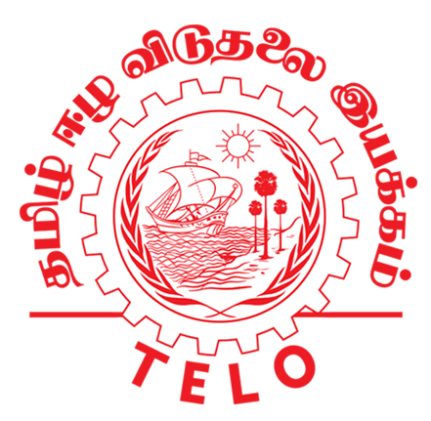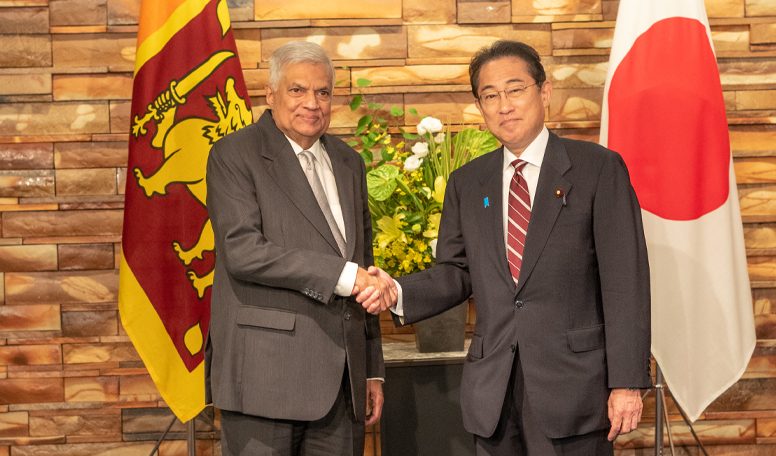Sri Lanka President Ranil Wickremesinghe has apologised to the Japanese government for the unilateral cancellation of a Japan-funded 1.5 billion dollar light rail transit (LRT) project.
Wickremesinghe, who met Japanese Prime Minister Fumio Kishida in Tokyo on Thursday May 25, spoke on the need for legislation to ensure that large-scale bilateral projects cannot be cancelled without mutual agreement, a statement from Wickremesinghe’s office said.
The cancellation of the Japan International Cooperation Agency (JICA)-funded project was controversial in Sri Lanka after the government under then President Gotabaya Rajapaksa, which was closer to Beijing, unilaterally suspended the project as well as another 500-million US dollar tripartite deal to develop the Colombo Port’s Eastern Container Terminal (ETC) together with India. Relations soured between Sri Lanka and Japan as a result. The east Asian nation has long been considered a friend of Sri Lanka with mutually beneficial diplomatic ties going back decades.
Since his appointment as prime minister in the wake of widespread protests in Sri Lanka after its currency crashed in early 2022, Wickremesinghe has shown a keen interest in repairing ties between the two countries.
Blaming poor foreign policy on the country’s international “marginalisation”, Prime Minister Wickremesinghe in June 2022 said: “Japan is our long time friend; a nation that has helped our country greatly. But they are now unhappy with us due to the unfortunate events of the past.”
The statement from President Wickremesinghe’s office on Thursday said he had expressed his gratitude to Japan during his meeting with Prime Minister Kishida for Tokyo’s support in helping Sri Lanka recover from its ongoing macroeconomic crisis. New opportunities to enhance cooperation between the two countries were also discussed, the statement said.
In another meeting held on the same day with Japanese Finance Minister Shunichi Suzuki, Sri Lanka’s debt restructuring and the island nation’s ongoing International Monetary Fund (IMF) programme were discussed. A subsequent meeting with Foreign Minister Yoshimasa Hayashi had focused on strengthening long-term bilateral relations including increased cooperation in economic and cultural fields.
Wickremesinghe and former Prime Minister of Japan Yasuo Fukuda had participated in a breakfast meeting earlier Thursday organised by by the Japan-Sri Lanka Association where the latter had been briefed on Sri Lanka’s recovery efforts.
The statement said the president had highlighted the favourable investment climate in Sri Lanka and extended an invitation to Japanese investors to return and invest in the country.
In another meeting with a former Japanese premier, Taro Aso, Wickremesinghe had discussed potential steps to strengthen the existing close and friendly relationship with Sri Lanka, the statement said.
In a separate round of discussions with Singapore’s Deputy Prime Minister Lawrence Wong, also in Tokyo, President Wickremesinghe had reaffirmed Sri Lanka’s commitment to implementing the Singapore Free Trade Agreement (FTA), the statement added.
The president’s office said quoting Wickremesinghe that many Asian nations have already made a choice between China and the United States in a polarising geopolitical situation and that choice is Asia accommodating the ambitious projects by both Beijing and Washington.
The president had made these comments when he addressed the “Nikkei Forum: Future of Asia‟ held in Tokyo, where, according to the statement, he had highlighted the importance of Asian states having a voice in shaping the region’s role amidst the evolving geopolitics on the global stage.
“We in Asia don’t want to choose between the U.S. and China,” Wickremesinghe said.
“Many of us cannot make that choice because we have already made our choice, and that choice is Asia,” he said.





